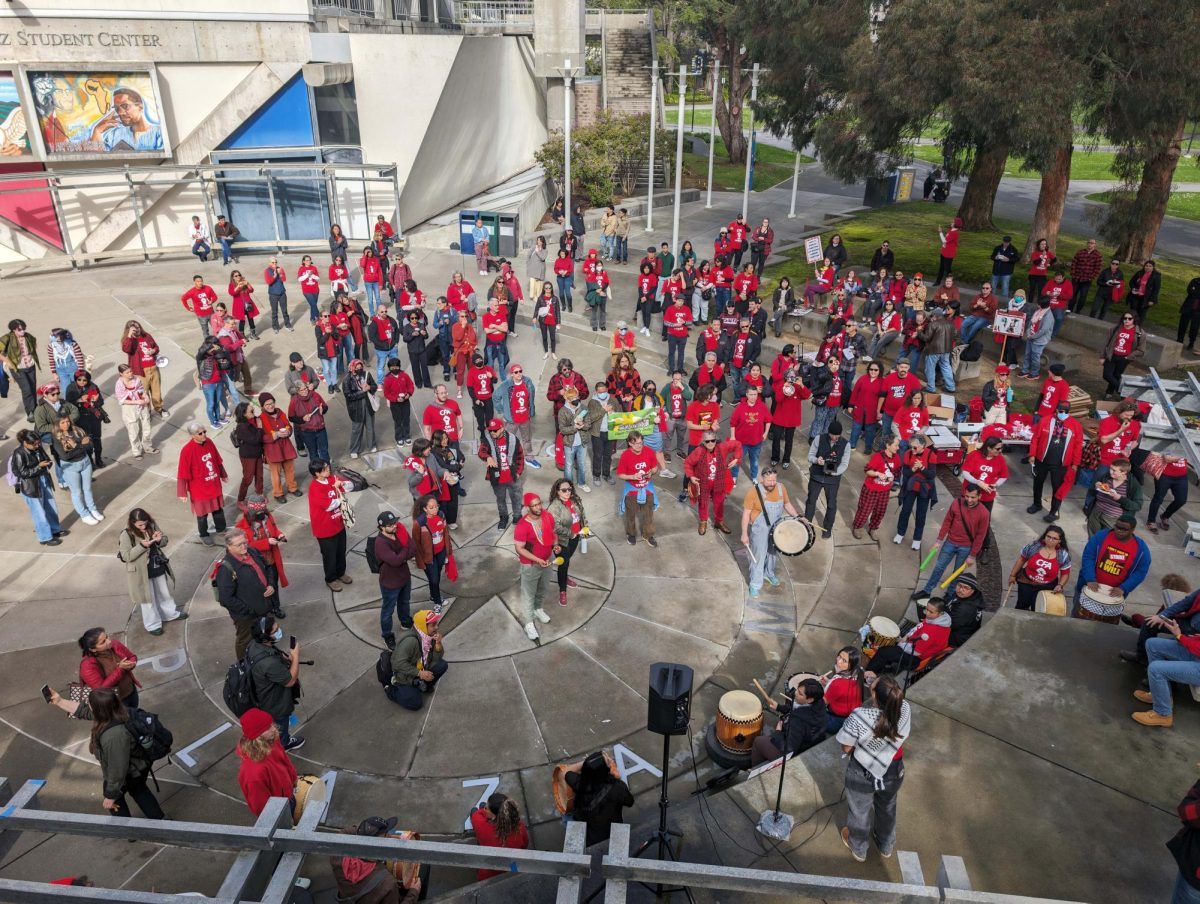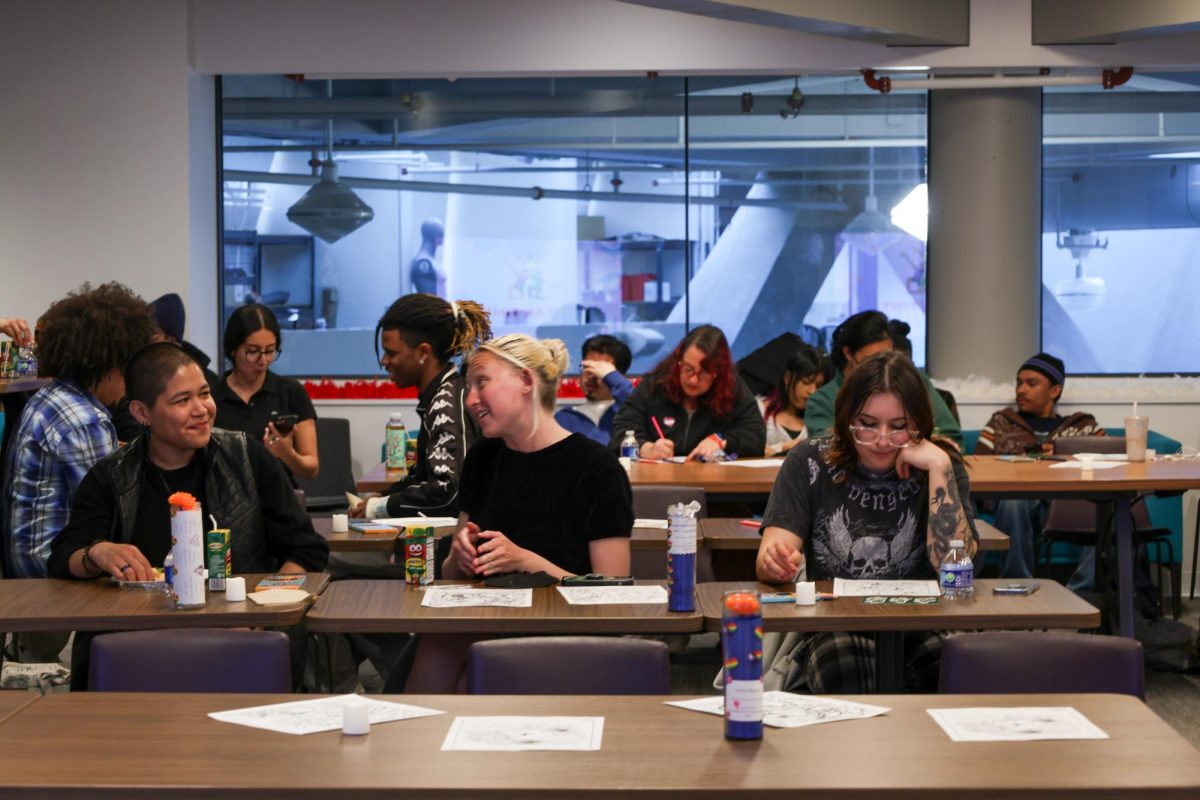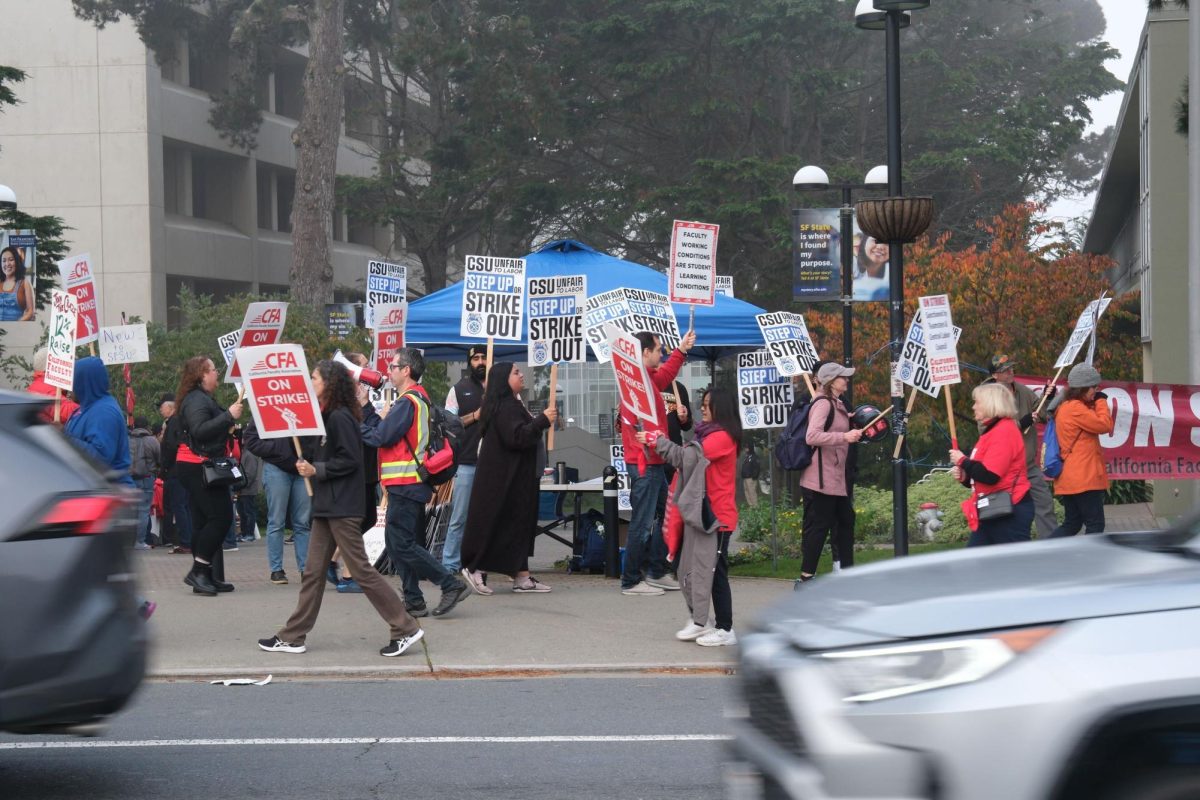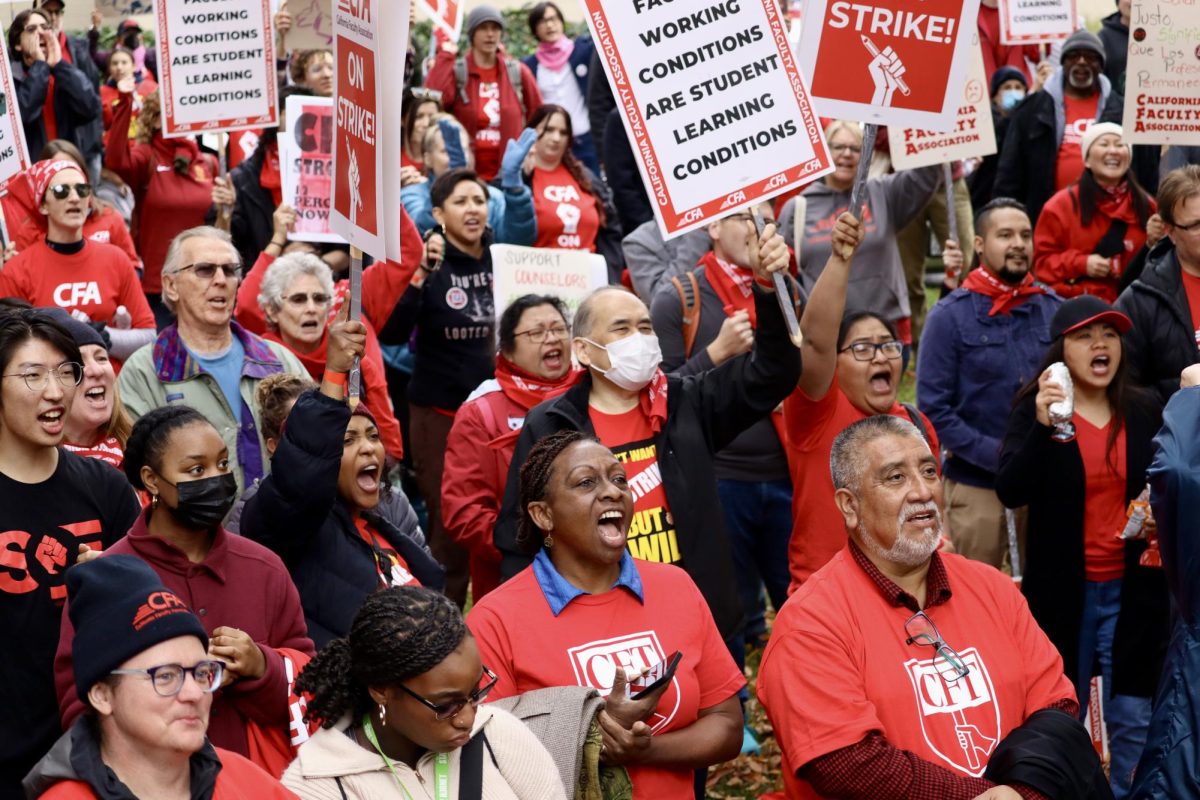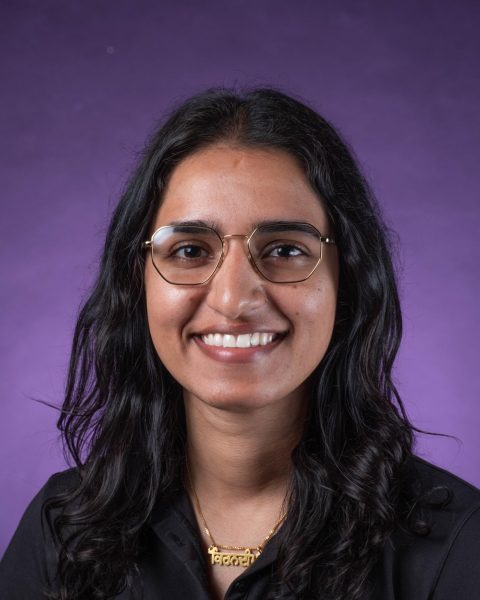California Faculty Association members approved the tentative agreement with California State University management on Monday, with 76% of voters in favor of the proposal.
Following months of continuous bargaining negotiations and a week of voting to decide whether the terms offered should be ratified, the approved tentative agreement signals a new beginning for the future of faculty and lecturers.
San Francisco State University faculty members stated their disappointment with the approval of the tentative agreement, with many believing more could have been achieved by the union, according to interviews conducted by Golden Gate Xpress.
CFA San Francisco Graduate College of Education representative Irina Okhremtchouk said she felt discouraged, believing that those negotiating at the bargaining table quickly settled for the tentative agreement despite an immense amount of support from the public throughout the process to negotiate for what they were hoping for.
“Settling for something that is so far off from the goals and objectives of the agreement that actually probed the strike is quite disappointing, and I have to say, quite embarrassing,” Okhremtchouk said.
According to the agreement, faculty will receive paid parental leave from 6 weeks to 10 weeks.
“Maybe we couldn’t get 15-16 weeks, which is one semester, but aligning it with the Family and Medical Leave Act with federal guidelines would have been prudent,” said Okhremtchouk. “Where did the ten weeks come from?”
“This tentative agreement is so far from the goals and objectives that were set that it’s really inexcusable to move forward with ending the strike, putting disagreement up for membership votes where the goals and objectives are not met,” Okhremtchouk said.
CFA-SFSU faculty rights Chair Kurt Nutting knows the discontent is being shown at SFSU and multiple CSU campuses. However, he views this issue as something that hits home at SFSU due to recent faculty layoffs. “It’s only a matter of time,” Nutting said, “until other CSU campuses begin to feel the effects.”
“I think the crisis of Cal State is bigger at our campus than most of the others, or maybe any of the others, and that’s sort of exemplified by the gigantic layoffs at the beginning of this semester that the administration refuses to admit,” Nutting said. “I think we’re sort of the canary in the coal mine.”
Jaimy Mann, CFA-SFSU college of ethnic studies representative, said she felt shocked and blindsided by the CFA’s agreement with CSU management after one day of striking.
Mann attended the opening bargaining tables in Long Beach and Sacramento, and she felt both parties were aligned in their goals heading into negotiations.
“I was stunned that they made an agreement so quickly behind closed doors, without any input from anyone, and that was the process,” Mann said. “It was just very surprising and felt kind of either unethical or ill-advised.”
While Mann says she understands the individual personal motivation behind the “yes” votes for the agreement, she believes they are misinformed and complicate matters for the voting members.
“It’s all very complicated and convoluted and tricky, and it really shouldn’t be,” Mann said. “There’s a lack of transparency and a lack of clear direction that regular faculty members, including some that have written books about different labor movements, are trying to lay out in ways that are more accurate.”
Unlike other CSU campuses, SFSU was one of the few (along with CSULA) with many members outwardly vocalizing their opposition to the agreement, further personified by the recent “NO” campaign.
“Reflecting on months of organizing, I am the most proud of the incredible labor of my union colleagues who transformed the unfortunate and forced depletion of our strike solidarity into the NO campaign with thousands of others across the CSU in days and are now organizing for a more democratic union,” said Constance Gordon, the communications tenure/tenure-track representative for CFA-SFSU. “Building a bottom-up rank-and-file union is the work that is ahead. We are growing in power and are building the infrastructure to continue.”
Many representatives from other CFA chapters statewide see this agreement as a hard-fought victory against CSU management.
“I am relieved and heartened by the gains we have achieved through this bargaining process, which have surpassed the initial offers from management,” said Dr. Shelly Collins, co-president of CFA Long Beach. “These achievements underscore the power of unity and collective bargaining in effecting meaningful change.”
Certain campuses will be reaping the benefits of this tentative agreement more than others. CFA Bakersfield president Dr. Tracey Salisbury said that CFA members from her chapter are ultimately content with the agreement, as “members voted “yes” in an overwhelming 87% majority.”
“We have a majority [of] lecturers on our campus, so the lecturer deal serves us,” Salisbury said. “We have a lot of young faculty with families, so the family leave being doubled is a great deal for us. A great number of our faculty are happy with the raise and believe we’re going to get the full 10.5%.”
Before the agreement’s approval, CFA Sacramento Bargaining Team Chair Kevin Wehr saw the tentative agreement as progress and knew that the negotiations would reopen again to allow room for improvement on the current deal.
“Bargaining is an iterative process. You never get everything you want, even by going on strike,” Wehr said. “I wouldn’t have brought [the deal] to the board of directors if I thought we could have done better.”
Wehr says that the tentative agreement can be improved with further negotiations, which will happen as early as next year if necessary.
Though approved, 24% of CFA members voted no on the tentative agreement, which sowed disagreement within the union about what is best for the CFA faculty and lecturers.
CFA East Bay president Jeff Newcomb knows that while some may disagree on certain issues, he believes the union must ultimately congregate and discuss what can be done collectively by all chapters.
“I think what is crucial here is that everyone have the patience and trust and the value of working together in the value of literally a union in order to devise a common voice,” Newcomb said. “Common spirit is crucial to recover.”





